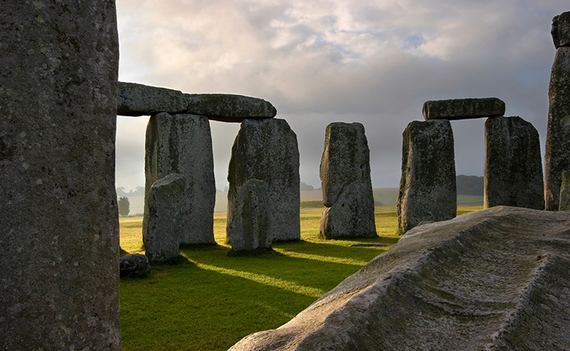Seven days; lots of science in the news. Here's our roundup of this week's most notable and quotable items:
Stonehenge was surrounded by a complex of smaller henges and pit-like monuments that appear to have astronomical significance, according to new 3D-scanned maps of the area around the ancient stone circle. Half of all bird species in North America are facing grave threats from climate change. Two solar flares--one of which belongs to the most intense class of flares--erupted from a sunspot pointed toward Earth, sending a geomagnetic storm towards our planet.
Astronomers added a new address line for our planet: Laniakea Supercluster. A spate of a few sunny days seems to boost suicide rates, particularly in women. Earth's ozone layer is recovering, largely thanks to the elimination of chlorofluorocarbons (CFCs), chemicals once used in aerosol sprays, refrigerators, air conditioners, and other products. A new fossil of the swimming dinosaur Spinosaurus -- 95 million years old, 50 feet long, and sporting a 7-foot-tall sail -- was uncovered in the Sahara desert.
Female baboons that socialize with males live longer -- although making pals with baboons of both genders provided the biggest longevity boost. The Mars Curiosity rover reached the final destination of its mission: Mount Sharp. A 24-year-old woman in China was found to have no cerebellum in her brain. This brain region is tied to crucial motor skills, but the woman has suffered only mild problems with movement and speech.
The active ingredient in hallucinogenic mushrooms may help long-term smokers kick the habit. Princeton researchers are working on transforming light into solid crystal. People with type AB blood have an increased risk for memory problems later in life. Religious people and ungodly types commit moral and immoral deeds with about the same frequency.
_____________
"This Week In Science" is brought to you by the World Science Festival. For more fascinating science news, conversations, events, and more, check out the Festival's website.
